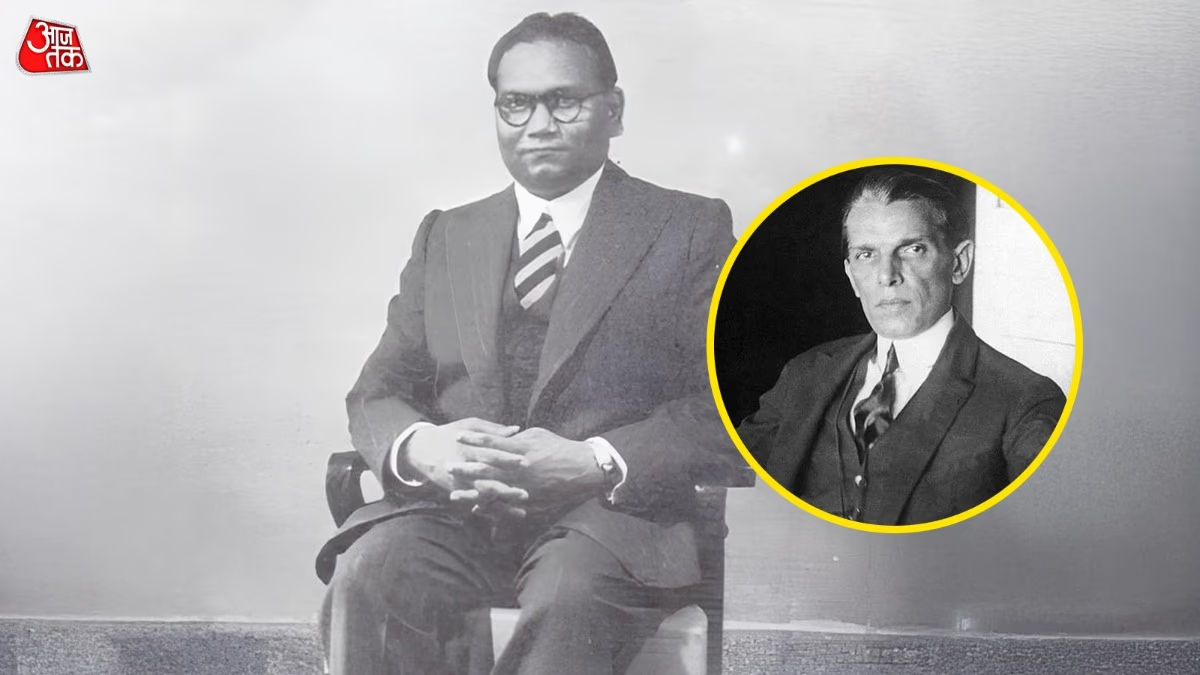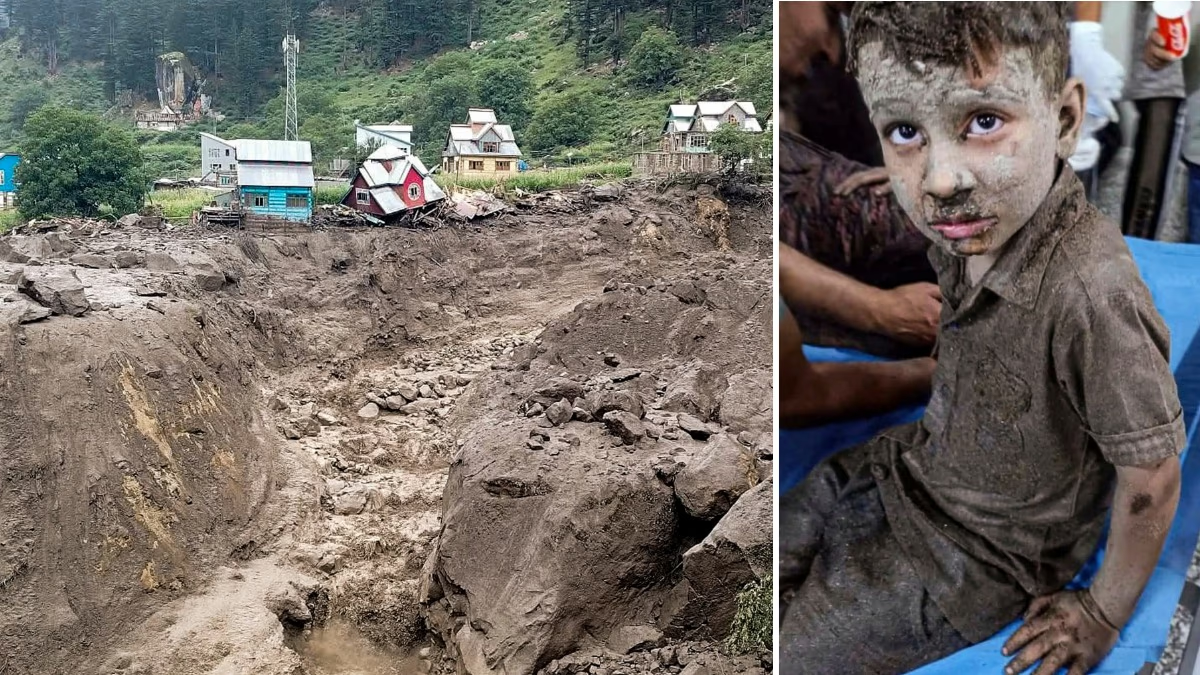On August 15, 1947, India gained independence from British rule, only to be divided into two as Pakistan was established. Many iconic Muslim figures like Muhammad Ali Jinnah and Liaquat Ali Khan migrated from India to Pakistan. Among them was a unique Hindu leader, disillusioned with the societal order and inspired by Jinnah, Jogendra Nath Mandal, who set his foot in Pakistan.
Jogendra Nath Mandal, as the name suggests, was from the Hindu faith, specifically from the Dalit community. Fueled by dreams, Mandal ventured to Pakistan, where he became its first Law Minister. However, with Jinnah's demise, Mandal's aspirations crumbled.
Witnessing the rise of religious intolerance in Pakistan, Mandal realized the nation no longer suited him, prompting his return to India. In his resignation letter to Pakistan's then Prime Minister, he stated that the country's establishment was using religion as a weapon, making it impossible for him to stay.
Who Was Jogendra Nath Mandal?
Jogendra Nath Mandal was born into a farming family in the Bakarganj town of Barisal district during the Bengal Presidency under British India. He belonged to the Namasudra community, a Dalit society. His father prioritized education for Mandal, even at the cost of everything else. Mandal's uncle supported his educational expenses.
After initial education in a local school, Mandal pursued higher studies at Barisal's prestigious Brojomohan College. Graduating in 1934 with a law degree, he deviated from practicing law professionally. Instead, he championed the rights of Dalits, dedicating his life to uplifting their welfare and fighting against injustices.
Jogendra Mandal's Political Journey
Mandal began his political career after completing his education by contesting the municipal elections in Barisal, advocating for the upliftment of the marginalized. In the 1937 Indian provincial elections, he contested as an independent candidate for the Bakarganj North-East Assembly seat in East Bengal, defeating the Indian National Congress district committee president, Saral Kumar Dutta.
Subhas Chandra Bose significantly influenced Mandal politically. After Bose's split from Congress, Mandal joined the Muslim League. He admired Dr. Ambedkar and played a pivotal role in Ambedkar's election from Bengal to the Constituent Assembly in 1946 after Ambedkar's unsuccessful run in Bombay. Mandal, a Constituent Assembly member, contributed significantly, offering counsel to Ambedkar in drafting the Indian Constitution.
Mandal's Affinity for Jinnah
In the 1946 riots, Mandal toured East Bengal, urging Dalits not to retaliate against Muslims, as he perceived them, similar to Dalits, as victims of exploitation by upper-caste Hindus. Through this, he supported the Muslim League and grew close to Jinnah. Mandal wasn't a proponent of India's partition but felt that the condition of Dalits wouldn't improve amid the upper-caste Hindus, perceiving Pakistan as a better opportunity.
In October 1946, Jinnah selected Mandal as one of the five representatives for the Muslim League in the Interim Government of India. Despite warnings from Ambedkar—India's leading Dalit leader at the time—Mandal, swayed by Jinnah's assurances, chose Pakistan.
Pioneer of Pakistan's Law Ministry
Post-partition, Mandal relocated to Pakistan, becoming a Constitution Assembly member and serving as its temporary chairman. Jinnah entrusted him to preside over the inaugural session of Pakistan's Constituent Assembly. Ironically, while Dr. Ambedkar became India's first Law Minister, Mandal took the mantle for Pakistan as its Law and Labor Minister. However, within a few years, both Mandal and Ambedkar had to resign from their positions.
Resigning on October 8, 1950, Mandal expressed desperation, contrasting Ambedkar's strategic resignation a year later, post-drafting India's Constitution in January 1950.
Jinnah's Demise and Mandal's Diminished Hopes
After moving to Karachi, Mandal witnessed deep-seated discrimination against Dalits and violence against Hindus, troubling him immensely. Following Jinnah's death in September 1948, Mandal's importance waned within the Pakistani government. Despite repeated pleas to Prime Minister Liaquat Ali Khan about the plight of Hindus and Dalits, no action surfaced.
Having envisioned Dalit freedom in Pakistan's creation, Mandal was let down by the discrimination faced by Hindu minorities. With religious extremism inciting violence against Hindus in Pakistan, Mandal found himself marginalized in its political sphere.
Various post-Jinnah events disheartened Mandal, realizing that promises made to minorities were now hollow, with religious zealots dominating governance. Life grew unbearably challenging, compelling Mandal to flee Pakistan.
Pakistan's 'Objectives Resolution' was passed, with all but one minority member opposing it, while all but Mian Iftikharuddin among Muslim members voted in favor. Mandal remained in Prime Minister Liaquat Ali Khan's cabinet until 1950, consistently voicing concern over the atrocities faced by Dalits in East Pakistan.
In his resignation in October 1950, Mandal expressed a deep disillusionment concerning the future of minorities, detailing the reasons fostering his view. He bemoaned incidents of Dalit murders by military, police, and Muslim League workers in Bengal, marking the end of his connection with Pakistan.
Mandal's Return to India from Pakistan
Mandal's resignation resulted in significant political unrest, particularly when he moved to Calcutta, intensifying his accusations against Pakistan. Transitioning in 1950, he resettled in West Bengal, India, only to face suspicions even from his community, given his Pakistani return.
Though once allied with Dr. Ambedkar, India's preeminent Dalit leader, Mandal found no supporters after returning. From 1950 to 1968, he spent much of his time in Calcutta's impoverished quarters, an area reserved for Dalits.
Attempts to mend ties with Congress led Mandal to unsuccessfully contest elections from North Calcutta in 1952 and 1957. His demise in 1968 was abrupt, following a heart attack while crossing a river on a boat. Only the boatman witnessed this, and an autopsy was never conducted. The true cause of Mandal's death remains a mystery.




